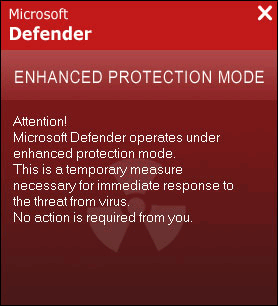Ai Quick Links Browser Extension
During an examination of potentially suspicious programs, cybersecurity researchers came across the Ai Quick Links browser extension. Upon in-depth analysis, they concluded that this particular software operates as a browser hijacker. The primary functionality of this extension involves making alterations to the settings of the user's browser, deliberately orchestrating redirects to a promoted destination.
The key concern with the Ai Quick Links extends beyond its redirection capabilities. There is a notable likelihood that this browser extension engages in the unauthorized collection of sensitive browsing data from users. This data could encompass various aspects of users' online activities, potentially raising privacy concerns.
Browser Hijackers Like the Ai Quick Links Could Expose Users to Significant Privacy Risks
Browser-hijacking software operates by configuring browsers to designate endorsed websites as their homepages, default search engines and new tab pages. Once modified, these browsers initiate redirects to the specified Web pages whenever a new tab is accessed or a search query is typed into the URL bar.
Typically, software falling under this category promotes fraudulent search engines that redirect users to legitimate Internet search websites, as by themselves they are unable to provide authentic search results. However, Ai Quick Links differs by directly redirecting users to the Bing search engine. However, it's important to note that the redirection destination could vary due to factors like user geolocation.
To ensure persistence, browser hijackers commonly employ techniques that hinder access to removal-related settings or reverse user-initiated changes, thereby preventing the recovery of the browser to its original state.
Additionally, the Ai Quick Links may possess data-tracking functionalities. The information it gathers could encompass a range of details such as visited URLs, viewed Web pages, search queries, Internet cookies, account log-in credentials, personally identifiable information, financial data and more. Subsequently, this collected information may be shared with and/or sold to third parties.
Browser Hijackers are Often Spread via Questionable Distribution Tactics
Browser hijackers are frequently distributed through questionable tactics that exploit unsuspecting users and compromise the integrity of their web browsers. Several common methods include:
- Bundled Software: Browser hijackers often come bundled with seemingly legitimate software that users intentionally download. Users may not be aware that additional software is included in the installation package, leading to unintentional installation of the browser hijacker along with the desired program.
- Deceptive Websites: Unsafe websites and online platforms may host misleading advertisements or fake download buttons that, when clicked, trigger the download and installation of browser-hijacking software. Users may be tricked into thinking they are downloading a legitimate program or update.
- Freeware and Shareware: Free software and applications available on the Internet may be packaged with browser hijackers as a way for developers to generate revenue. Users who opt for free software without carefully reviewing the installation process may inadvertently allow the installation of unwanted browser modifications.
- Fake Browser Updates: Cybercriminals often create fake browser update notifications that appear authentic. When users click on these deceptive notifications, they might unknowingly download and install browser hijackers instead of legitimate updates.
- Unsafe Email Attachments and Links: Phishing emails may possess attachments or links that, when opened or clicked, cause the download and installation of browser-hijacking software. These emails often employ social engineering techniques to fool users into taking actions that compromise their security.
- Unverified Browser Extensions: Some browser extensions, especially those obtained from unverified sources or third-party repositories, may contain hidden browser hijacking functionalities. Users should exercise caution when installing extensions and only use those from reputable sources.
To protect against the spread of browser hijackers, users should practice safe browsing habits, download software from trusted sources, keep their software and browsers up to date, and employ reliable security software to detect and prevent potential threats.


